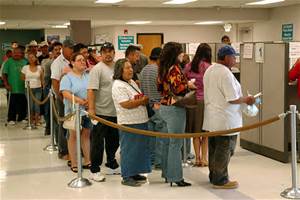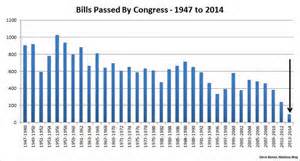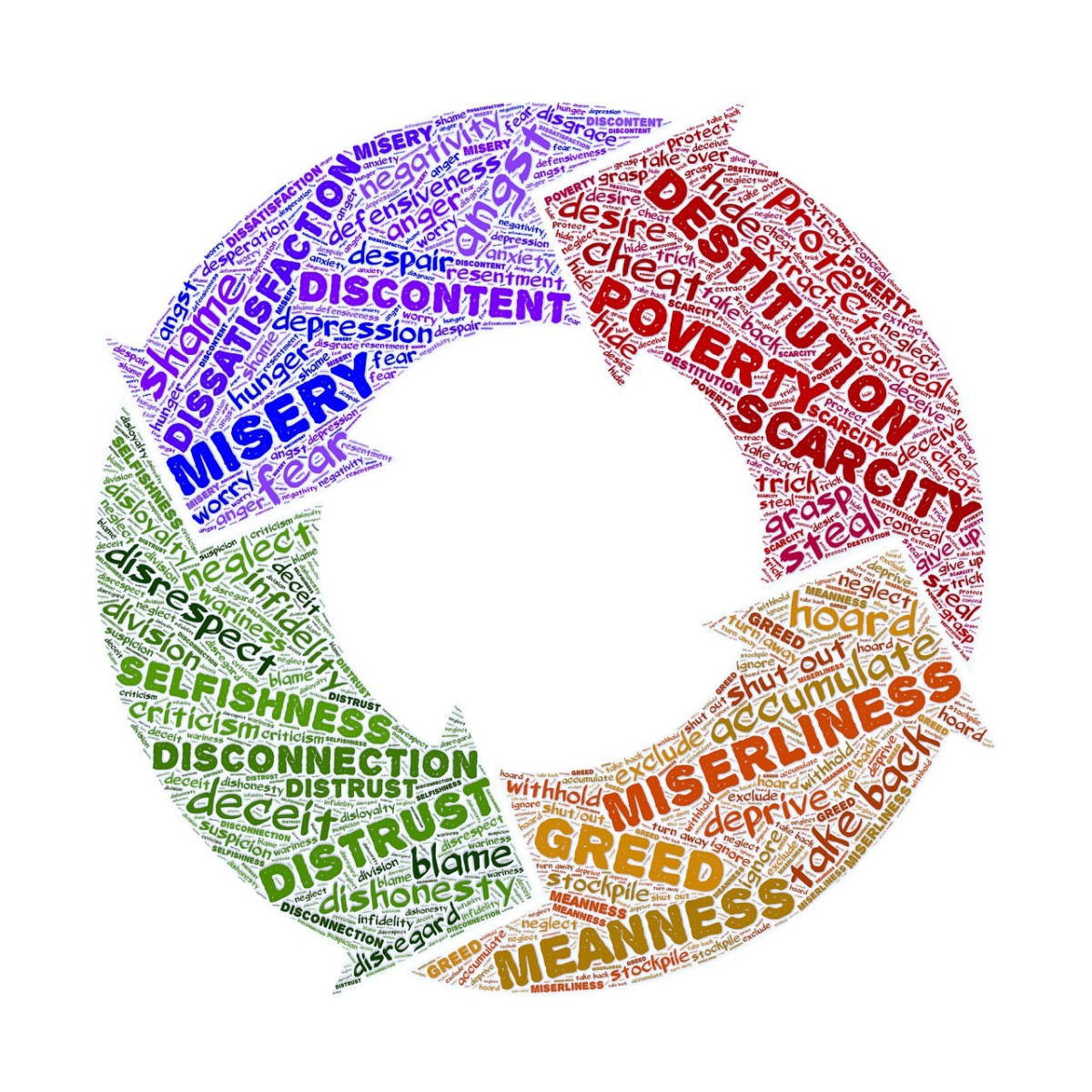The history and future of "Social Welfare" and "Democracy"
Welfare Lines

Social Welfare
Webster's Dictionary defines 'social welfare' as a noun meaning "organized public, or private, social services for the assistance of disadvantaged groups".
Although this definition is true, it is more complex and far broader reaching than this over simplification implies.
- The Truth About Social Welfare
"You just hate poor people, don't you? Where is your COMPASSION?" This is the phrase that I most commonly hear from liberals when I express my vehement disgust in Social Welfare programs. That reaction is one of the reasons that many conservatives...
Social Reform Program
The "Social Reform Programs" encompass any of a variety of governmental programs designed to protect citizens from the risks of the insecurities of economic life.
The most commonly found types of the social reform programs provide benefits to the elderly, the sick or invalid, dependent survivors, mothers, the unemployed, the work injured, and families.
The earliest modern social welfare laws were enacted in Germany in the 1880's.
In the United States a foundation of minimum protections has come to be viewed as one of government's general responsibilities.
With respect to "specific" risks in many countries, the consensus holds that public responsibility extends to all of those unable to care for themselves for whatever reason.
In this view social welfare is extended and received as a matter of right rather than need.
Social Services
Efforts to organize private charity, and place it on an institutional basis, date back to the "Elizabethan Poor Law of 1601".
In the 19th century Great Britain, Germany and the United States further developed that basic concept. Among the many forms that social welfare services may take, the following are the most commonly encountered today.
- Family Welfare (marriage counseling, maternal care, family planning, family life and home economics education, home help services, etc..)
- Child Welfare (the largest and most widely implemented areas of social service that includes maternal and child health-care, protection for unwed mothers and their children, abused and neglected children, day care and foster parent care, etc..)
- Groups Welfare (include programs directed toward immigrants, migrants, transients, minority groups, the handicapped, military personnel, veterans, disaster relief, medical and psychiatric treatment, elder care, etc...)
Social Security has nothing to do with the deficit?
Social Security
This was a program to protect individuals and their families from income loss due to unemployment, old age, sickness or death, and to improve their welfare through public services (social insurance programs, health and welfare services such as medicare and medicaid).
In the past, welfare provisions were the responsibility of the individual and the family which were often not enough to sustain life. Then churches began to open channels for distributing aid.
Gradually more organized methods for such provisions developed: (working men's associations, mutual benefits societies, trade unions, etc..).
Eventually these services were established by law, in well developed industrial countries with large portions of the population being employed.
Social Security Act
As a result of the Great Depression in the early 1930s, 5,000,000 (five million) people joined together in a nationwide effort [known as Townsend Clubs, that was promoted by Francis E. Townsend] to support his program demanding a $200.00 monthly pension for everyone over the age of 60.
In 1934 President F.D. Roosevelt set up a committee to study 'Economic Security' to consider the matter and offer recommendations.
In 1935 the U.S.congress enacted legislation that established a permanent national old age pension system entitled the "Social Security Act" to be completely financed by a payroll tax on employers and employees (Railroad employers were exempted and covered under the "Railroad Retirement Act of 1934)
Over the years, adjustments were periodically made by progressively bringing more workers into the system and adjusting both taxes and benefits in an attempt to keep pace with inflation.
The main reason for this type of payroll tax was to make sure it was independent of the annual budget expenditures, and did not impact the economy is any fashion.
- The True American Class System. The Great Divide.
The U.S. class system is becoming far more distinct, and more deadly to the average American citizen. The only winners seem to be those who know how to play a corrupt game of monopoly.
Social Democracy
A political ideology that advocates a peaceful, evolutionary transition of society from Capitalism to Socialism using established political processes.
Because 'Socialism' (as viewed by Karl Marx, and others, was seen by most people as having common ideological roots with 'Communism', it was rejected by the majority as something "evil".
Karl Marx saw Capitalism as doomed; and that the ultimate subjugation of the working people would inevitably lead to a socialist revolution.
German political theorist, Eduard Bernstein (in 1899) challenged the Marx prediction that capitalism was doomed, by pointing out that it {Capitalism} was overcoming many of its weaknesses, such as unemployment, overproduction, and the disparate distribution of wealth.
He further added that ownership of industry was becoming more widely diffused rather than more concentrated in the hands of a few.
This prediction could not have been more wrong as we see the rapid growth of huge monopolies and the rampant greed and lust for power all around us today.
- It's all about the Redistribution of Wealth, and changing 'American "values"
There is little hope for America to survive and thrive without radical changes being mandated by our Government.
Capitalism
There is no doubt that Capitalism has run amok with its obsessive take over of Corporate America and fueled by insatiable greed for monetary superiority, and lust for power.
This hedonism embraced by a small percentage of our population has turned Capitalism into something loathsome to be reviled and railed against.
This small controlling faction sees Democracy (government by the people; and the rule of the majority) as their enemy.
They deliberately confuse people by overstating, and over exaggerating, the misconceptions that 'Democracy' is the same as 'Social Democracy'. When in fact they have nothing to do with each other.
Unfortunately most people do not understand those differences. This misunderstanding causes them fear and trepidation, that misguidedly leads to siding with the Aristocracy that has taken over our lives.
Attacks on our Democracy
Restoration
In order for this country (USA) to survive and thrive, Democracy must be restored and preserved as was originally intended when this country was founded - not what it has become today. The balance of power must be removed from the Aristocrats and returned to the people.
Sadly, in order to do this, there must be new laws passed to reverse today's trends before it totally destroys the very fabric of this great nation.
Restoration will not be an easy task when those who write and pass the laws are now the very same aristocrats who must be over thrown. We have reached the brink of stepping off the cliff to reach that proverbial event horizon that may literally be inescapable.
If, or when, the USA collapses because of the Greed and Avarice of a few, the rest of the world will suffer as well.
We are losing the "Social Welfare" programs put in place to protect the American people from the devastating effects of adversities beyond their control, leaving no safety nets for the majority of the people.
But what of Democracy? Will this also be lost to history as is being done to "Social Welfare"?
Who will stop the Aristocracy from completely over powering our great Democracy?
There is no Great White Savior to save us from the inevitable.
God knows that a "minority" President trying desperately to change this corrupt system, must be stopped by the "Capitalists", and our current "do nothing congress", from doing so at any cost to the individual America citizen, or to society itself.
by: d. william 07/13/2014
History of Bills actually passed by Congress










